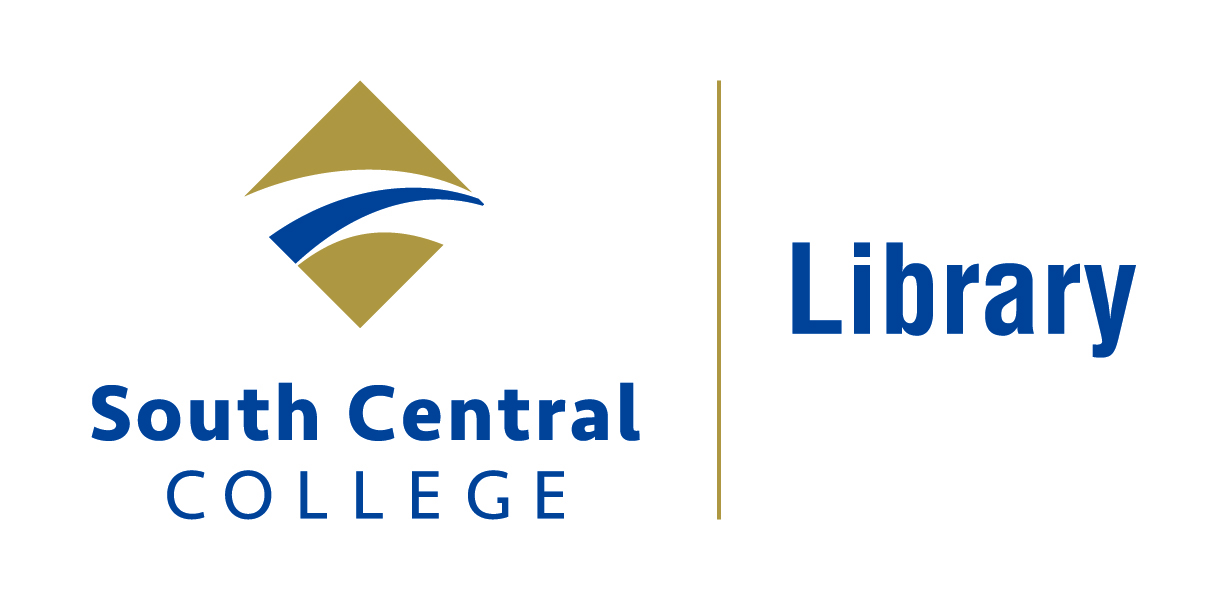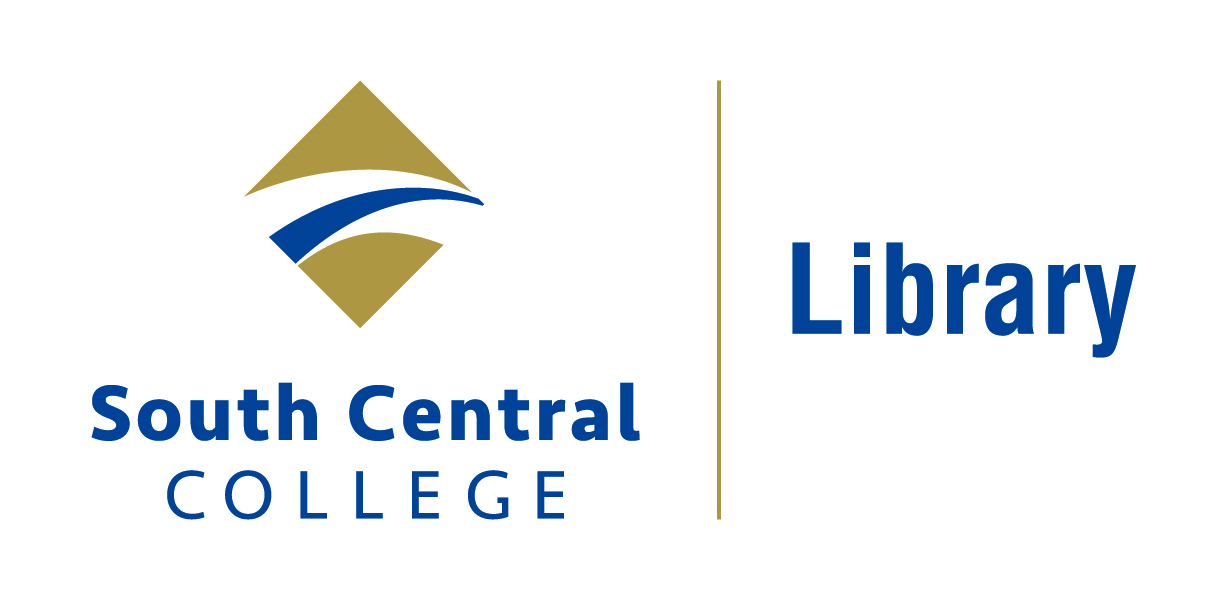SCC Library Catalog
Use your StarID to sign in to your account for best results, tools, and off-campus access
- SCC Catalog Home Page
Simple and advanced searching - Journal Finder
Find and browse e-journals in the SCC catalog
Resources
- Research Basics
When and how to begin at SCC Library - Using the Library Catalog
- Library Research Tutorial
Learn about information literacy, research, and critical thinking - FAQs
Brief answers to common questions - Guides
Research guides created for SCC programs and topics - A-Z Resources
Links to library databases, organizations, government agencies, digitial collections, and more
This is the starting point for the OWL at Purdue. It's a good source for all aspects of research, writing, and citation.
Research: Where do I begin? (OWL)
This section of the OWL helps students figure out how to start the research process.
Mind Map- Credo Reference
The Mind Map tool helps you connect concepts visually. Just type in a keyword, and the tool will map it. You'll need to log in with your StarID and password, if accessing from off campus.
Google Search Tips and Tricks (pdf)
Make Google work for you! Use this document to search Google in a smart and efficient way.
Google Scholar Search Tips
Searching Google Scholar can be challenging. Use this guide for help.
Points of View Reference Center
Provides students with a series of essays that present multiple sides of a current issue. The database provides topics, each with an overview (objective background/ description), point (argument), counterpoint (opposing argument), and Critical Thinking Guide. It also offers guides to debate, developing arguments, and writing position papers.
1) The information has already been evaluated for credibility.
2) Databases contain sophisticated tools to help you narrow your search without having to "speak computer."
3) Much of the information in databases can't be found with a Google search. They are part of the "invisible web."
Please refer to the Research Tutorials (Video) section for help in using the databases.
Scroll down the EBSCO list to find the video tutorials you need.
Evaluating Internet Health Information
Teaches the user how to evaluate health information for accuracy.
The Information Cycle
This video looks at the information cycle and how it impacts the availability of resources on a topic.
Produced by McMaster Libraries and used with permission.
Scholarly Sources vs Popular Sources
This video looks at scholarly sources versus popular sources and how it impacts the timeliness and credibility of resources on a topic.
Produced by McMaster Libraries and used with permission.
What is a Scholarly Article
"How Do I Know if Articles Are Scholarly or Peer-Reviewed? (Library Research Skills Tutorial)" used with permission from the Concordia University Library.
Use our catalog, OneSearch, to find the books and videos on our shelves, plus ebooks and streaming videos.
The best way to begin your search is to enter one or two keywords on your topic. To narrow your results, use the Modify My Results options on the left side of the screen. You can also click on a relevant title and click on one of its subject headings to focus your search on that particular topic.
Please ask a librarian if you need help locating anything you find in our catalog.
If we don't have the book, video, or article you're looking for, you can request it via interlibrary loan (ILL) and it will come to you. E-mail library@southcentral.edu to let us know what you need and we can do our best to help you find it.
Full text of 300+ U.S. and international news sources. Includes the New York Times (1999 to present), The Times of London (index and abstract only), the Wall Street Journal (1984 to present), and the StarTribune of Minneapolis (1986 to present).
This worksheet uses a rating method for Currency, Relevance, Authority, Accuracy, and Purpose when evaluating web resources. The CRAAP Test was developed by librarian at California State University, Chico. Content for this guide also based on CRAAP Detection: Criteria for Evaluation Information, created by OTIS College of Art and Design Library.
Evaluating Sources (OWL)
Use this resource to help you decide if the information you are looking at is credible and appropriate for your research topic.
The Fact checker's guide to manipulated video
By searching through and watching many hours of manipulated videos and reflecting on notable examples in the news cycle, we were able to pull out common threads for this standardized vocabulary. As the technology to manipulate video advances, there's even more urgency to understand what's real versus fake.
This tutorial produced by Eastern Michigan University puts the concepts of plagiarism into real-life context. It’s set up in a quiz format with closed-captioning.
Did I Plagiarize? (Flowchart)
This flowchart explains the severity of different types of plagiarism.
Avoiding Plagiarism (OWL at Purdue)
The Purdue OWL is often used by students in all phases of research and writing. This particular module focuses on avoiding plagiarism, recognizing it in someone’s work, strategies to use when taking notes and paraphrasing, as well as a “plagiarism exercise” to illustrate the principles explained earlier.
A free resouce from Citation Manager Zotero for creating citations
Scribbr APA
This free resource helps you generate an APA citation
Scribbr MLA
This free resource helps you generate an MLA citation
EasyBib
This resource allows you to generate an MLA citation from a variety of materials.
Son of Citation Machine
Son of Citation Machine helps you create citations in MLA, APA, Chicago, and Turabian formats. It also has a button called EssayCheck that will allow you to copy and paste your text in to have it checked/scored and get feedback.
APA Style (OWL)
APA In-Text Citation
The College of St. Scholastica in Duluth provides this comprehensive explanation of APA in-text citations, complete with examples.
MLA Style (OWL)
MLA Style Center
The MLA Style Center, published by the Modern Language Association, is the only authorized Web site about MLA style. This free, evolving resource is designed as a companion to the eighth edition of the MLA Handbook.

Contact us at library@southcentral.edu
Phone:
North Mankato Campus Library: 507-389-7245
Faribault Campus Library: 507-332-5814
Spring Hours 2026
North Mankato and Faribault Libraries
- Mon-Fri: 8:00 am - 4:00 pm
- Sat - Sun: Closed
Library Staff Tools
Use AskMN live, 24/7 chat service with librarians across the country, and answers most research questions. Average wait time is 1-2 minutes, but during certain times of day, librarians can be very busy! Be informal, but courteous and respectful.


